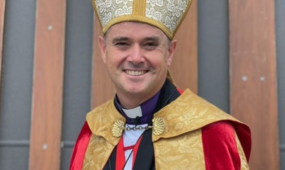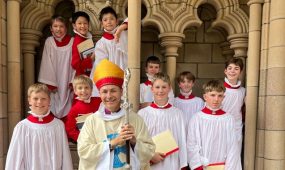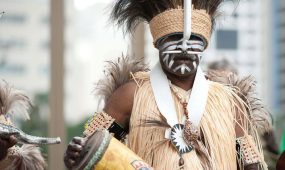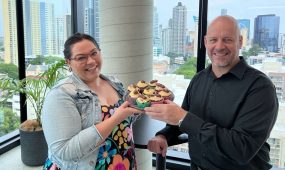Q&A with Kuku Yalanji woman and Anglicare Cultural Support Worker, Lalania Tusa
Spotlight Q&A
Meet Lalania Tusa and find out about the projects she is currently working on, why she encourages Christians to engage in Reconciliation with First Nations peoples and the heart-warming gesture she witnessed recently
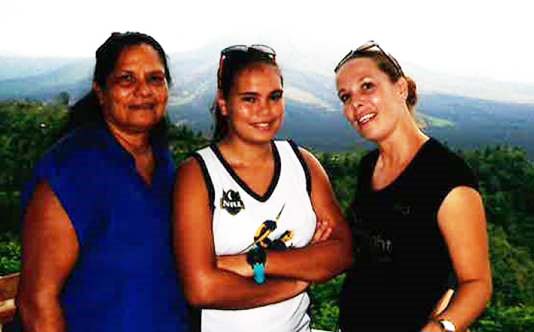
Anglicare’s Lalania Tusa is a Kuku Yalanji woman from Mossman, Far North Queensland. She recently moved to the Gold Coast with her family for better schooling and employment opportunities for her four sons. Throughout her working career, she has worked in a broad range of positions relating to children and families, including as a Cultural Officer, Playgroup Co-ordinator Assistant in community, a high school Youth Worker and in various other roles within the area of Aboriginal and Torres Strait Islander cultural practice.
Advertisement
How long have you been working for Anglicare and in what role?
I commenced employment with Anglicare at the end of 2019 as the Cultural Support Worker in the Children’s and Families Gold Coast Team, based in Nerang.
What does your role involve on a day-to-day level?
My role as Cultural Support Worker is to help strengthen the children’s cultural identity as an Aboriginal or Torres Strait Islander in modern society and use my cultural knowledge and upbringing to help guide our foster carers to assist in taking on this responsibility also.
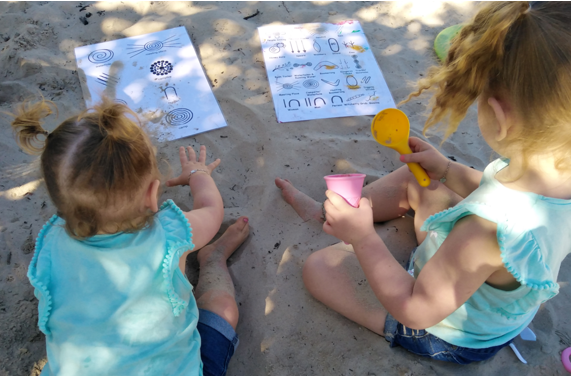
“Sand art and Aboriginal story telling in the sand”
What projects and activities are you currently working on?
A few of the projects that I have implemented and been working on recently are the continuation of the Jarjums Connect Group for our children in care that I developed to share and learn about First Nations cultures through culturally appropriate activities, including language, song, dance, art, medicinal plant uses, cooking, hunting, gathering, storytelling and more. The implementation of a Cultural Library based in the Nerang office, creation of ‘cultural bags’ for new carers of Aboriginal and Torres Strait Islander children; implementation of ‘Culture Time’ at team meetings that introduces our staff to a different topic each week based around Aboriginal and Torres Strait Islander cultures; and, the design and layout of the cultural wall that is located in the Nerang Anglicare office.
These projects align with Anglicare’s mission through showing compassion by offering care and support to our children in care and to their carers. It enables me to advocate for the most vulnerable in our community – First Nations peoples and help them to live their lives in fullness and hope.

Anglicare SQ Children and Families Team at the Nerang, Gold Coast
on 13 February 2020: Staff are gathering to celebrate National Apology Day with a cake made by Lalania
What have been the highlights of your roles so far?
In the short time that I have been of service to our children in care, I would have to say that the highlight has been creating the ‘Jarjums Connect Group’ out of the Gold Coast office for our children, carers, families, Elders, staff and community to come together and engage with Aboriginal and Torres Strait Islander cultures in a safe and caring space in the park at the Nerang River.
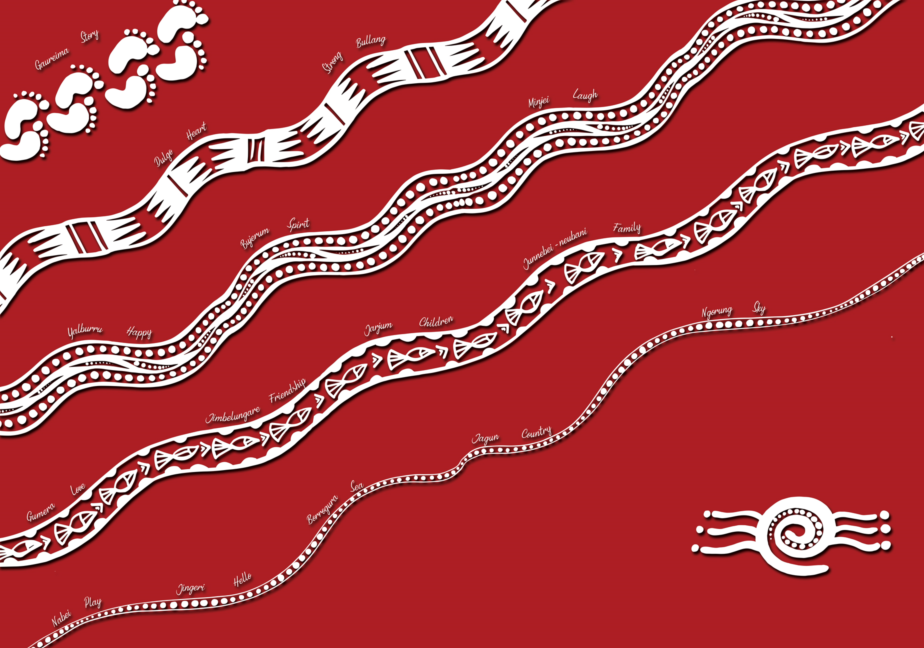
‘Cultural Wall’ designed for Jarjums at the Anglicare SQ Children’s and Families Team in Nerang: “This Art Piece titled ‘Our Journey’ was inspired by all children in care and tells the story of their journey”
What have been the key challenges of your roles so far and how have you worked through these?
The biggest challenge in my role thus far has been the COVID-19 restrictions and subsequently changing the way that we connect with our families and children.
Why is it important for Christians to engage in Reconciliation with First Nations peoples?
Through all the atrocities that First Nations peoples endured as a result of government assimilation policies and the Church involvement of removal of children, known as the ‘Stolen Generations’, there is a strong need for the Church to engage in Reconciliation. My mother, who is a Stolen Generation survivor and well-respected Elder endured hardships and excessive trauma as a result of being removed from her family in her younger years. True healing can only come from both sides of the party coming together and reconciling – this is the road to forgiveness and peace.
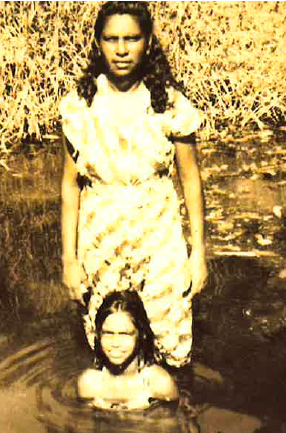
Lalania’s mother Janice Walker (bottom) and maternal grandmother Wilma Walker (standing) in Mossman, Far North Queensland: “My mother was sent home after being forcibly removed from her mother and father due to the Assimilation Policies of Queensland Government Acts 1967”
This year’s Diocesan theme is ‘Being Together: Practising Peacemaking’. What are some practical ways that we can implement peacemaking in the context of Reconciliation?
Peacemaking can start with practising a smile to all that we encounter throughout the day, no matter what colour their skin may be or from what walk of life they come from. And by sending a note of thanks to show our gratitude for Elders, both past and present, in an ever-changing world. Taking time to reflect and have a minute’s silence for all of those who have been affected by government assimilation policies and the inter-generational trauma of the Stolen Generations will also improve the Reconciliation between Indigenous and Non-Indigenous communities.
What are your plans and goals for the next 12 months?
My goal is to continue the important work of connecting our children in care with their Aboriginal and Torres Strait Islander identities and cultures. This is achieved through community networking and collaboration of support agencies, staff, community members and Elders for the Jarjums Connect Group.
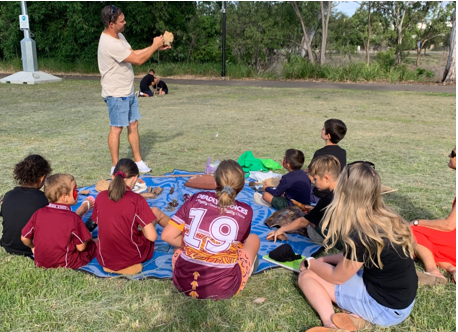
“Jarjums Connect Group in a session on ‘Artefacts and Hunting’ in February 2020 at Bischof Pioneer Park with Caleb Hall, an Aboriginal community member”
Can you tell us a little about your personal faith journey?
I was raised in church all my life with a strong foundation and faith in God. God has always been with me and continues to guide me in all my dealings in life.
How does your faith inspire you and shape your outlook, life choices and character?
Whenever there is any obstacles or situations in my life that I know is too big to handle in the physical I give it to the Lord and He always comes through for me.
My grandmother, who is turning 100 years of age this year, is Anglican and so I have therefore always maintained a high level of respect and admiration for the Anglican Church.
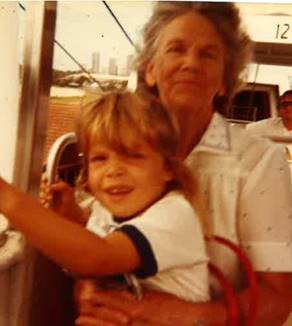
Lalania’s paternal grandmother Avis Hall and Lalania as a child on a visit to Brisbane to see her father and grandparents in 1985
What is your favourite scripture and why?
“In the beginning was the Word, and the Word was with God, and the Word was God.” (John 1.1)
This is my favourite scripture because it reminds me on a daily basis that if God created the Heavens and the Earth and us as humans through the spoken word, then we have a duty to keep our words, thoughts and actions focused on God. If we do this then we cannot go wrong in our daily dealings with other people and can spread God’s love and goodness wherever we go.
Advertisement
What person of faith inspires you the most and why?
I am inspired by my mother who runs the Mossman Gorge Community Church in the Heart of the Daintree Rainforest in Far North Queensland. My mother has a heart for people who are disadvantaged and gives all that she has to expand the Kingdom of God.
What are the primary strengths of the Church and what is the best way to make the most of these for the benefit of our communities?
The Church plays a major part in all communities and societies throughout Australia and the world. Through maintaining stable community connection, the Church provides much needed support and strength for all humans in need, both physically and spiritually.
What are the primary challenges currently encountered by the Church and what is the best way to overcome these for the benefit of our communities?
The Church endures many challenges because of humans and their comments and behaviours and only through showing God’s love can these be overcome. If we all do our part in shining God’s light out into the world, in whatever role we play within the Church, then this will limit the confrontation that is faced. This, in turn, will benefit the community and us all.
Related Story
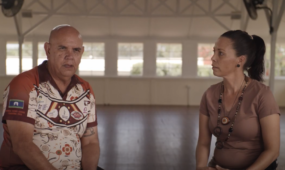 Video
Video
What is a Cultural Support Worker?
What is the kindest gesture you have ever received or witnessed?
The kindest gesture I have seen of late is a young boy in care who is painting positive messages on rocks and leaving them at the front of his house around the mail box for people walking past to brighten up their day in the wake of COVID-19. Children are our future and are the closest to God. If only we as adults adapted more of what they can teach us about love, humility, compassion and kindness, the world would be a much kinder place.
What is the best piece of advice you have ever received and who gave you this advice?
One of my messages that I have learnt from a book that I read years ago and now teach my children is, ‘When you have a chance to be kind or right – choose kindness.’ When I am in a sticky conversation with someone, I stop and think about this phrase and always choose kindness because that is one way of showing God’s Love.
What do you do in your free time to recharge and relax?
I love to paint in my down time and reflect on my life and how I can improve and help make the lives of my family and others better.
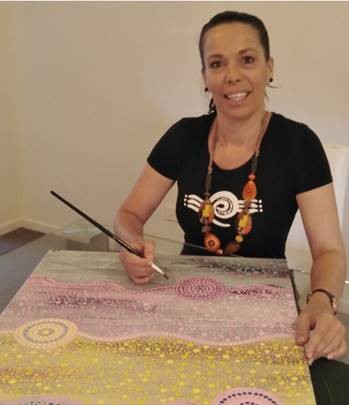
“Painting is a form of therapy and connection with my grandmother and the Elders of my heritage”
If you found yourself on a deserted island, what three things would you choose to have with you?
The Bible, my family and bush tucker
If you could have a billboard with any text on it, what would it say and why?
‘Treat others how you want to be treated’ in order to send out more reminders of love into the world.
Where do you do your best thinking?
When I am painting or doing arts and crafts at home in the quiet.
What’s your best childhood memory?
Swimming in the Mossman Gorge Rainforest while eating freshly picked mangos in the water.
If you are having a bad day, what do you do to cheer yourself up?
Have a nice hot cup of tea.
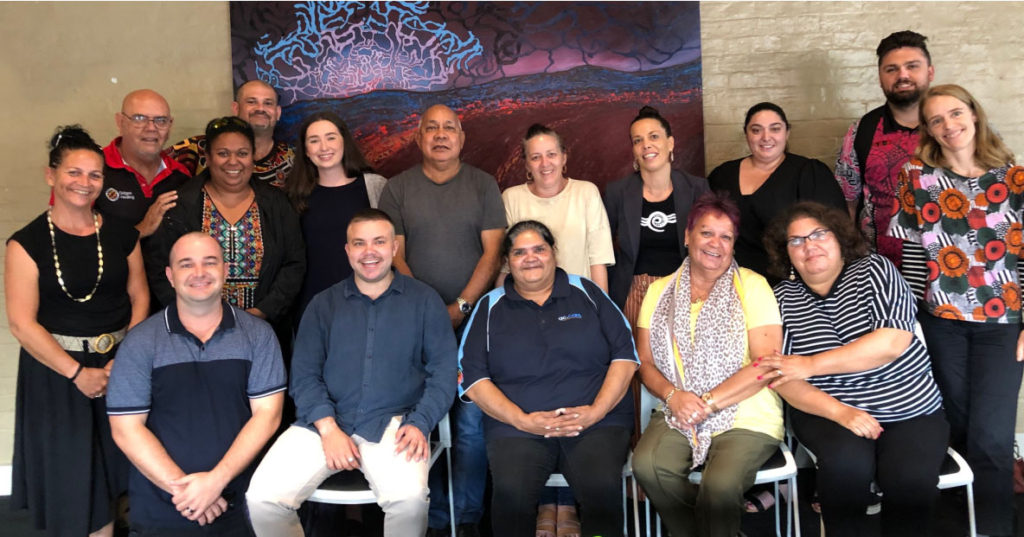
Anglicare First Nations Mini Conference Sydney – Redfern Indigenous Centre of Excellence on 6 March 2020

